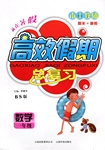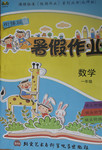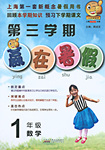
第四部分:书面表达(共两节,35分)
第一节 情景作文
假设你是红星中学高三(1)班的学生李华,10月25日你和你的朋友王伟参加了 “2009北京外语游园会” (Beijing Foreign Language Festival 2009),请根据以下四幅图的先后顺序,以日记的形式记录当天的活动。词数不少于60。

October 25 Sunday Sunny
Today I took part in Beijing Foreign Language Festival with my friend Wang Wei.
______________________________________________________________________________________________________________________________________________________________
One possible version:
October 25, Sunday Sunny
Today I took part in Beijing Foreign Language Festival with my friend Wang Wei. We arrived there by bike in the morning sunshine. First we attended a lecture introducing effective methods for learning English. The audience were absorbed in it and took notes carefully. Then we went to the English Corner, where a lot of people were chatting with foreigners in small groups. Wang Wei and I joined them with great interest. It was amazing to find myself talking with a native speaker and we got on quite well. Time passed quickly. Before leaving, we bought some books and dictionaries.
The Festival gave me a good chance to practice English, as well as confidence and encouragement for my study.


 本土教辅赢在暑假高效假期总复习云南科技出版社系列答案
本土教辅赢在暑假高效假期总复习云南科技出版社系列答案 暑假作业北京艺术与科学电子出版社系列答案
暑假作业北京艺术与科学电子出版社系列答案 第三学期赢在暑假系列答案
第三学期赢在暑假系列答案科目:高中英语 来源:北京市朝阳区2010届高三第二学期统一考试(二)(英语) 题型:写作题
第四部分:书面表达(共两节,35分)
第一节:情景作文(20分)
假设你是李华,在上周进行的研究性学习活动中,你班同学了解了珍稀动物金丝猴的相关信息。请根据下列表格所提供的内容,给你的笔友Peter写封信,向他介绍此次活动。
注意:
1.信的开头和结尾已为你写好。
2.词数不少于60。
提示词:研究性学习:inquiring learning 金丝猴:golden monkeys
| 第一组 | 第二组 |
| ●到动物园观察金丝猴的特征 | ●上网了解金丝猴的现有数量 |
| ●去图书馆查阅金丝猴的习性 | ●听专家介绍对金丝猴的保护措施 |
| ●汇总信息,完成报告 | |
| ●活动体会:学会合作;体验新的学习方式 | |
查看答案和解析>>
科目:高中英语 来源:湖南省2009-1010学年度高一第一学期期末考试试题 题型:任务型阅读?
第四部分: 书面表达(共两节, 满分35分)
第一节 填空 ( 共10小题;每小题1分, 满分10分)
阅读短文,根据所读内容在文后76--85的空格里填上适当的单词或短语, 并将答案转写到答题卡上。注意:每空不超过3个单词。
In many English homes four meals are served; they are breakfast, lunch, tea and dinner. These are the meals that are served in the homes of people who are well to do.
Breakfast may be served any time for seven to nine. It consist of porridge, bacon and eggs (boiled or fried), butter toast or bread-and-butter with marmalade (酸果酱). Instead of bacon and eggs, fish may be served. Either tea or coffee is drunk at breakfast.
Lunch comes at about one o’clock. It generally consists of cold meat (left over from yesterday’s dinner), potatoes, and salad. After that there is bread or biscuits and cheese. Most people drink water at lunchtime; some drink beer or wine. It is not the custom to drink the spirits (烈性酒) like whisky or brandy even wealthy homes in the middle of the day.
Afternoon tea, taken between four and five, is the most informal meal of the day. If you are a friend of the family you may drop in for tea without an invitation or telling them that you are coming. Each person has a cup and saucer, a spoon and a small plate for bread-and-butter and cake. By the way, do not help yourself to cake first; bread-and-butter first, and then cake if there is any. Another piece of advice: do not put more than one piece of bread or cake on your plate at the same time.
Dinner is the most substantial (丰盛的) meal of the day and is a very formal meal. Many people even wear special clothes for dinner, so if you are asked out of dinner you must find out whether you are expected to wear a dinner suit; for you would feel very embarrassed if, when you go there, you were the only person in ordinary clothes. Dinner is generally served at about half past seven. All the members of the family sit down together and are on their best behavior. The head of the family sits at one end of the table; his wife sits at the other. If there is a guest, he generally sits in the place of honor, which is at the right of lady of the house. If there are several guests the most important is asked to sit there. During the meal conservation is carried on, you should try to get into the conversation with the person on your right or left, but you should not try to talk to someone who is a long way from you.
Title: 76._______________________
|
77. ___________ |
79. _____________ |
Food |
Drinks |
Notes |
|
Breakfast |
7 to 9 a.m. |
Porridge, bacon & eggs, etc |
83. ________________ |
|
|
Lunch |
80. _____________ |
Cold meat, potatoes, salad, bread, biscuits & cheese |
84. ________________
|
|
|
Afternoon tea |
4 to 5 p.m. |
82. ______________________ |
tea |
85. __________ |
|
78. ___________ |
81. _____________ |
|
|
Most formal |
查看答案和解析>>
科目:高中英语 来源:湖北省荆门市20092010学年度高二上学期期末考试试卷(英语) 题型:其他题
第四部分:书面表达(共两节,满分40分)
第一节:完成句子(共10小题;每小题1.5分,满分15分)
阅读下列各小题,根据括号内的汉语提示,用句末括号内的英语单词完成句子,并将答案写在答题卡上的相应题号后。
71._______________(非常有可能)they failed to grasp the key points of what I said just now .(likely)
72. Our company insisted on__________ (签订一份协议) them in case there was a sudden change when cooperating. (agreement)
73. Water, which seems so simple and common, is ______________(使生命成为可能的东西.(what)
74. Martin Luther King.Jr _______________(以……而闻名)a freedom fighter for equal rights of black people in America . (know)
75. ____________(惊讶于)the beautiful scenery at the Copacabana Beach , he decided to come again the following year . (amaze)
76. How he regretted what he had wasted before, for it is impossible for lost time ____________.(弥补回来) (make )
77. It is believed that he __________________(可能参与了)in planning the monument, or in helping transport and pull up the stones. (hand)
78.________(如果你要寻求帮助)when you are in trouble, please contact us and we are always here waiting for you. (should)
79.The world is changing fast, and we are said __________________(正生活在) the “Information Age”, a time of new discoveries and great changes. (live)
80. Only if you show mercy yourself______________________(你可以希望得到) mercy. (hope)
查看答案和解析>>
科目:高中英语 来源:四川省2009-2010学年高一下学期期中考试试题(英语) 题型:短文改错
第二卷 写作(共35分)
第四部分:书面表达(共两节,35分)
第一节 短文改错(共10小题;每小题1分,满分10分)
此题要求改正所给短文中的错误。对标有题号的每一行作出判断:如无错误,在该行右边横线上画一个勾(√);如有错误(每行只有一个错误),则按下列情况改正:
此行多一个词:把多余的词用斜线(\)划掉,在该行右边横线上写出该词,并也用斜线划掉。
此行缺一个词:在缺词处用一个漏字符号(^),在该行右边横线上写出该加的词。
此行错一个词:在错的词下划一横线,在该行右边横线上写出改正后的词。
注意:原行没有错的不要改。
On March 12th, we went to plant trees on the hill near to 76. ?
our school. The boys were made dig pits(坑).The 77. ?
girls were told to plant the young trees into the pits. 78. ?
All of us worked very hardly. Soon we were all wet 79. ?
with sweat. After the young trees planted, we 80. ? ?
began to water it. The water was at the foot of 81. ? ?
the hill. But we stood in line to pass pails(桶) 82. ? ?
of water from one to other up to the hill. 83. ?
We did not finish water the trees until it 84. ?
was dark. Though we were tired, we feel very happy. 85 ?
查看答案和解析>>
科目:高中英语 来源:2009年普通高等学校招生全国统一考试江苏卷英语试题 题型:书面表达
(2009.北京卷):书面表达(共两节,35分)
第一节, 情景作文(20分)
假设你是红星中学高三一班的学生李华,为响应绿化祖国的号召,你班四月十二日去郊区植树,请根据以下四幅图的先后顺序,介绍植树活动的全过程,给某英文杂志的“绿色行动”专栏写一篇以“Green Action in Our Class”为题的英文稿件。
注意:词数不少于60
提示词:郊区 suburbs

第二节 开放作文(15分)
请根据下面提示,写一篇短文,词数不少于50
In your spoken English class, your teacher shows you the following picture. You are asked to describe the picture and explain how you understand it.

第四部分:书面表达(共两节,35分)
第一节 情景作文(20分)
一、内容要点:
1、 骑车去植树
2、 植树
3、 安插提示牌
4、 照相
二、说明:
内容要点可用不同方式表达
查看答案和解析>>
湖北省互联网违法和不良信息举报平台 | 网上有害信息举报专区 | 电信诈骗举报专区 | 涉历史虚无主义有害信息举报专区 | 涉企侵权举报专区
违法和不良信息举报电话:027-86699610 举报邮箱:58377363@163.com